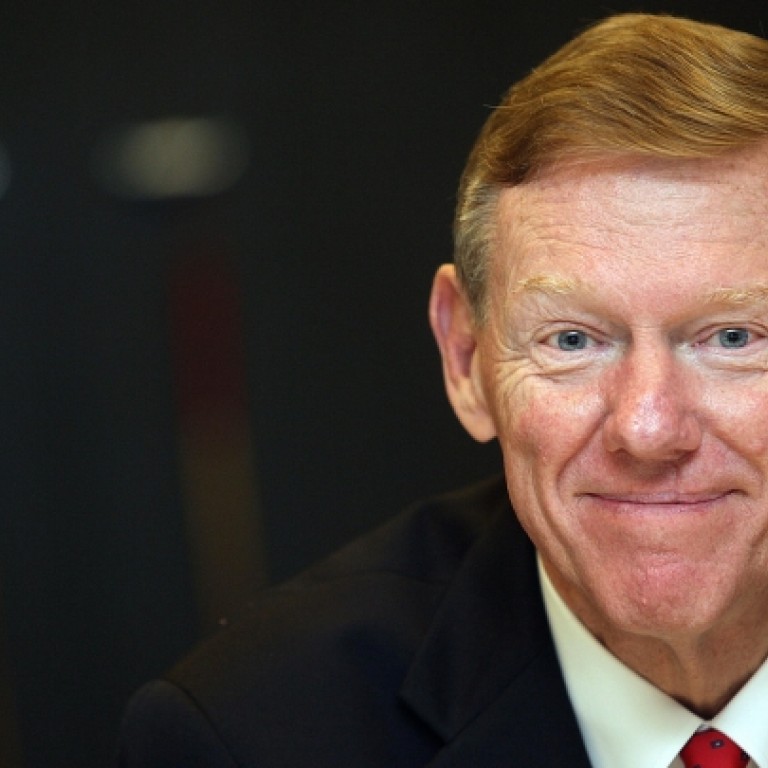
Ford CEO calls Japan a 'currency manipulator' after steep fall in yen
Complaint comes as fall in yen versus US dollar helps American sales of Japanese-made vehicles
Ford Motor chief executive Alan Mulally called Japan a currency manipulator that is giving local exporters an unfair edge as the weaker yen threatens to undermine US carmakers' profits.
Japan is "absolutely" manipulating its currency, the head of the second-biggest US carmaker said in an interview yesterday. "With the currency manipulation, we just have to get back to the place where the currencies are set by the markets and the free trade agreements really are free trade agreements."
Mulally, who has expressed concerns about the yen throughout this year, illustrates how the currency-led boon for Japanese exporters is drawing mounting international criticism.
Bank of Korea governor Kim Choong-soo this week urged Asian countries to work together to defend themselves against the side-effects of Japanese Prime Minister Shinzo Abe's reflation campaign, dubbed Abenomics.
"Mulally is one of the harshest critics on the yen," said John Zeng, a Shanghai-based analyst at LMC Automotive. "A weaker yen puts them in a disadvantageous position."
The yen has fallen against every major currency since mid-November, including 17 per cent versus the US dollar, bolstering the value of overseas sales at Japanese exporters from Toyota Motor Corp to Sony Corp.
Japan's benchmark stock index, the Topix, climbed to its highest in almost five years last month and exports from Japan in May increased the most since 2010.
Mulally reiterated his concerns that Japan is a closed market for US carmakers, who have hired lobbyists to oppose Japan's bid to join negotiations aimed at creating the Trans-Pacific Partnership, a regional free-trade agreement.
Japanese carmakers account for more than 90 per cent of sales in their home market.
"It's just the most closed market in the world," Mulally said.
Democratic congressman Sander Levin of Michigan, and 46 other Democrats, said in a letter to President Barack Obama in March that the car import market in Japan is unfairly closed to US-made vehicles, and letting the nation join the regional trade deal would hurt rather than help address that imbalance.
Sho Minekawa, a senior managing officer at Honda Motor, said it is "not true" that Japan is a closed market, when asked about Mulally's comments at a company event.
Nissan Motor chief executive Carlos Ghosn has countered criticism over the yen, saying such calls ignore history. Ghosn has said as recently as late March that the yen was only "neutral" when it trades at 100 to the US dollar and that the Japanese currency had averaged at about 110 in the past 10 to 15 years.
Among the first signs of a Japanese carmaker taking advantage of the yen, Nissan has cut prices on seven models and boosted incentives, helping its US sales surge 25 per cent in May, triple the industrywide gain.
